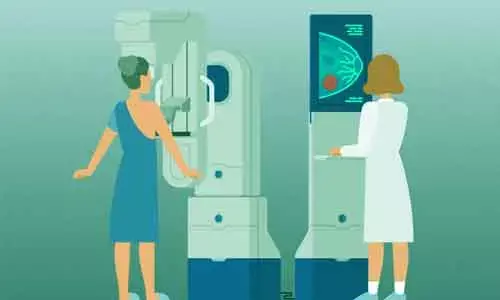- Home
- Medical news & Guidelines
- Anesthesiology
- Cardiology and CTVS
- Critical Care
- Dentistry
- Dermatology
- Diabetes and Endocrinology
- ENT
- Gastroenterology
- Medicine
- Nephrology
- Neurology
- Obstretics-Gynaecology
- Oncology
- Ophthalmology
- Orthopaedics
- Pediatrics-Neonatology
- Psychiatry
- Pulmonology
- Radiology
- Surgery
- Urology
- Laboratory Medicine
- Diet
- Nursing
- Paramedical
- Physiotherapy
- Health news
- Fact Check
- Bone Health Fact Check
- Brain Health Fact Check
- Cancer Related Fact Check
- Child Care Fact Check
- Dental and oral health fact check
- Diabetes and metabolic health fact check
- Diet and Nutrition Fact Check
- Eye and ENT Care Fact Check
- Fitness fact check
- Gut health fact check
- Heart health fact check
- Kidney health fact check
- Medical education fact check
- Men's health fact check
- Respiratory fact check
- Skin and hair care fact check
- Vaccine and Immunization fact check
- Women's health fact check
- AYUSH
- State News
- Andaman and Nicobar Islands
- Andhra Pradesh
- Arunachal Pradesh
- Assam
- Bihar
- Chandigarh
- Chattisgarh
- Dadra and Nagar Haveli
- Daman and Diu
- Delhi
- Goa
- Gujarat
- Haryana
- Himachal Pradesh
- Jammu & Kashmir
- Jharkhand
- Karnataka
- Kerala
- Ladakh
- Lakshadweep
- Madhya Pradesh
- Maharashtra
- Manipur
- Meghalaya
- Mizoram
- Nagaland
- Odisha
- Puducherry
- Punjab
- Rajasthan
- Sikkim
- Tamil Nadu
- Telangana
- Tripura
- Uttar Pradesh
- Uttrakhand
- West Bengal
- Medical Education
- Industry
Study shows low rates of breast cancer overdiagnosis in mammography

UK: Results from a case-control study in Cancer Medicine have revealed that mammography benefits outweigh overdiagnosis risks, especially since the rate of overdiagnosis is low.
Considering the uncertainty about overdiagnosis in mammography screening, Stephen W. Duffy, Queen Mary University of London, London, UK, and colleagues aimed to estimate the effect of screening on breast cancer incidence and overdiagnosis in the NHS Breast Screening Programme in England.
57,493 cases and 105,653 controls were included in the study, with cases defined as women diagnosed at ages 47–89 with primary breast cancer, invasive or ductal carcinoma in situ, in 2010 or 2011. Where possible two controls matched on date of birth and screening area were selected per case.
To estimate the effect of screening on breast cancer risk, conditional logistic regression was used. To estimate absolute rates of overdiagnosis, results were combined with national incidence data. Calculation of overdiagnosis was done as the cumulative excess of cancers diagnosed in the age group 50–77 in a woman attending three-yearly screening between ages 50 and 70 compared with a woman attending no screens.
The study led to the following findings:
- The estimated number of cases overdiagnosed in women attending all screens in the program was 679.3 per 100,000 without adjustment for self-selection bias and 261.2 per 100,000 with adjustment.
- These corresponded to an estimated 9.5% of screen-detected cancers overdiagnosed without adjustment and 3.7% with adjustment for self-selection.
The researchers conclude, "our results showed little if any overdiagnosis, and it is reasonable to conclude that National Health Service Breast Screening Programme (NHSBSP) is associated with at worst modest overdiagnosis of breast cancer." "A more intensive program, such as annual mammography seen in the U.S., as well as screening with higher age limits, could result in higher overdiagnosis numbers."
"Absolute probability of having an overdiagnosed breast cancer is a more useful measure for women deciding whether to accept breast cancer screening offers," they wrote.
They added, "Even our more pessimistic estimate of overdiagnosis was lower than suggested in the past."
Reference:
The study titled, "A case–control study to evaluate the impact of the breast screening programme on breast cancer incidence in England," was published in the journal Cancer Medicine.
DOI: https://doi.org/10.1002/cam4.5004
Dr Kamal Kant Kohli-MBBS, DTCD- a chest specialist with more than 30 years of practice and a flair for writing clinical articles, Dr Kamal Kant Kohli joined Medical Dialogues as a Chief Editor of Medical News. Besides writing articles, as an editor, he proofreads and verifies all the medical content published on Medical Dialogues including those coming from journals, studies,medical conferences,guidelines etc. Email: drkohli@medicaldialogues.in. Contact no. 011-43720751


